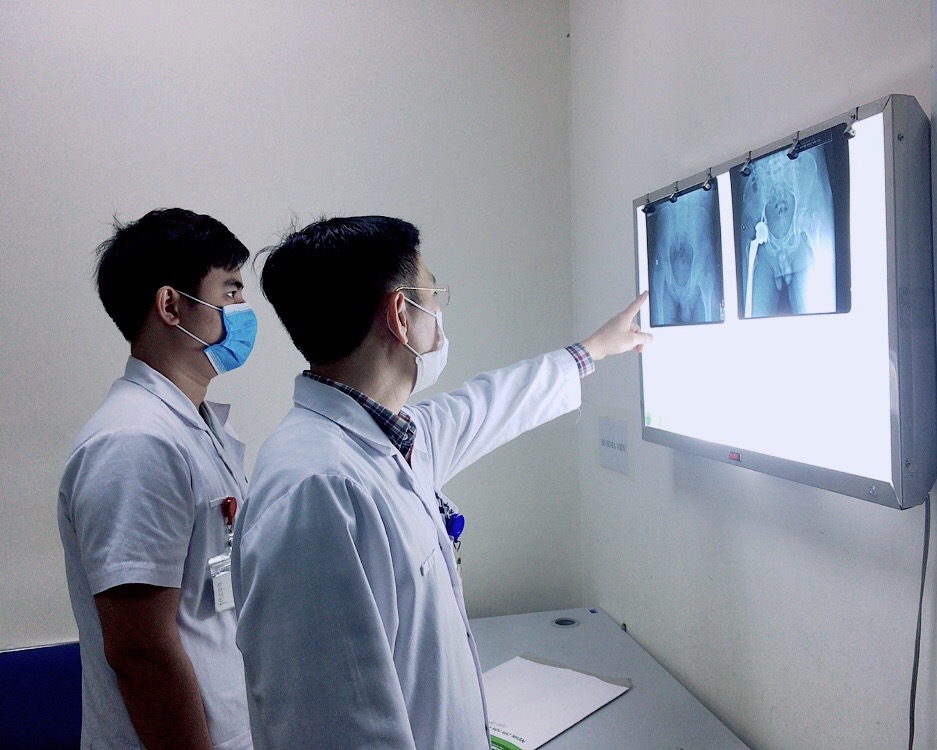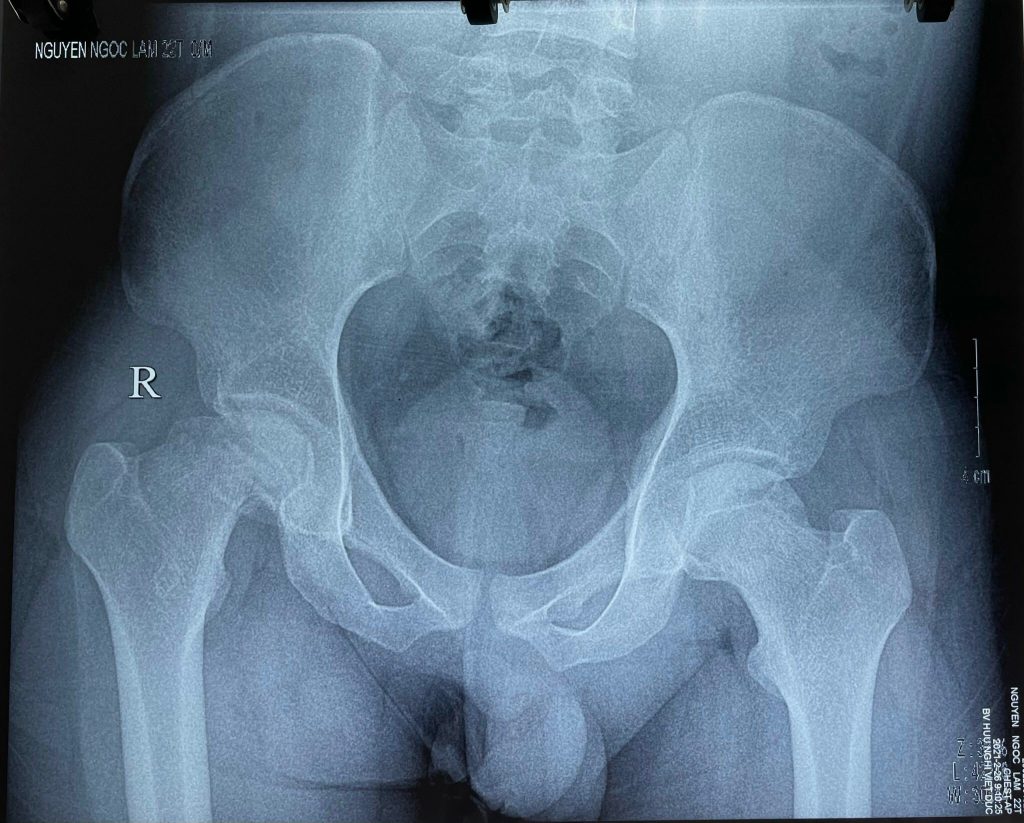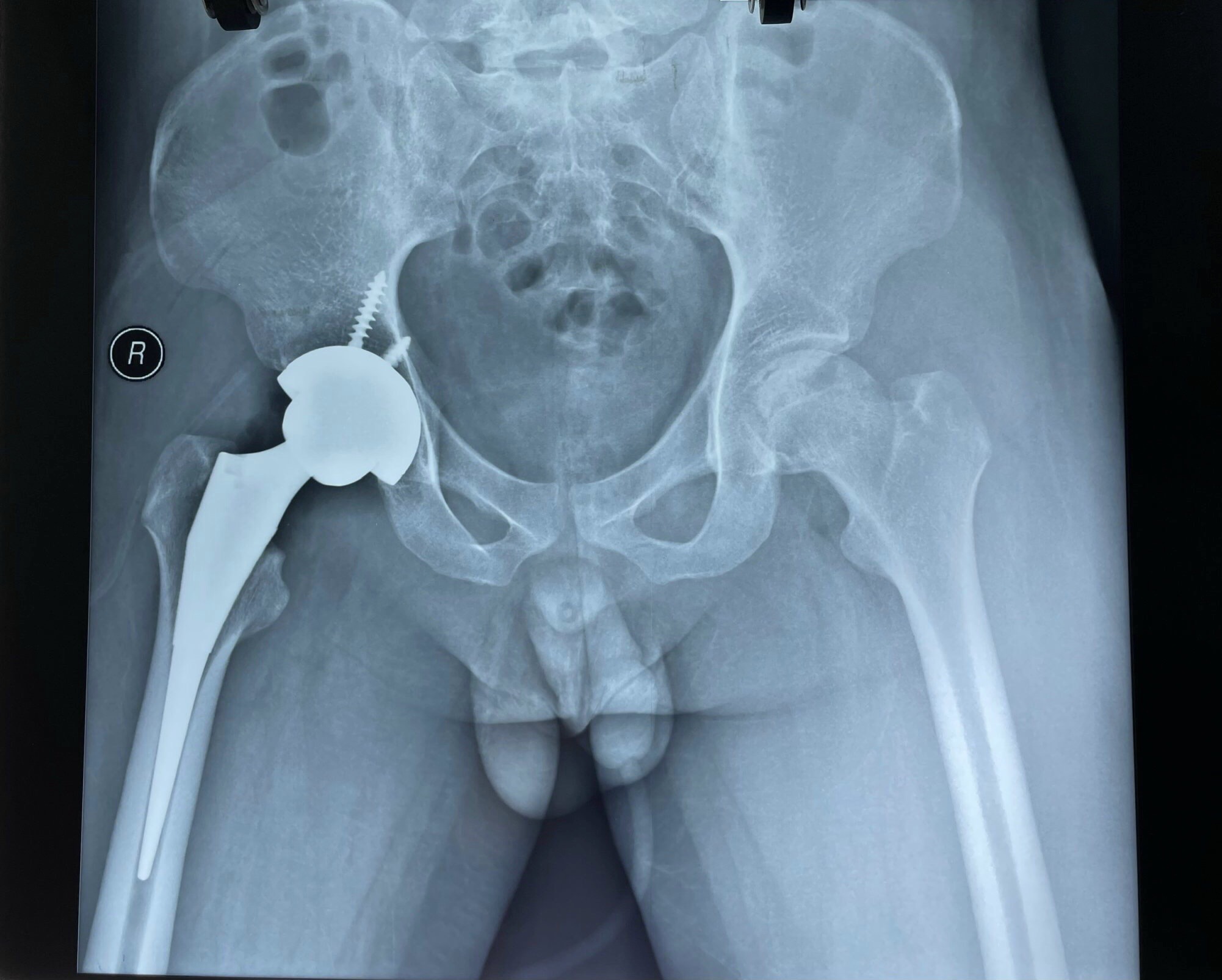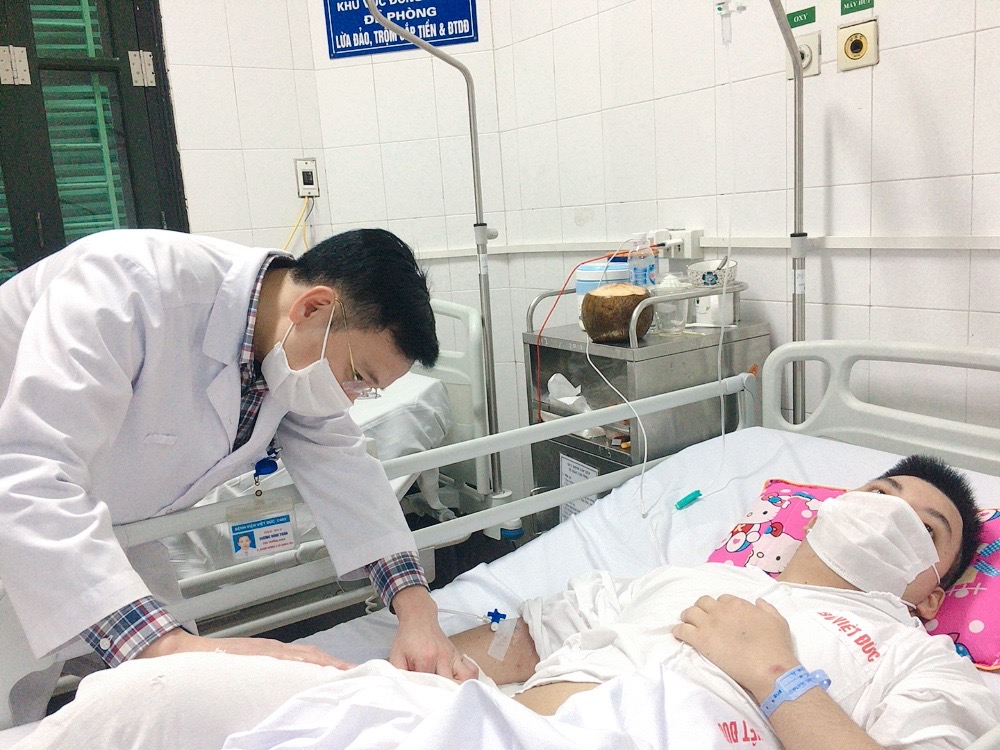Hip replacement for avascular necrosis of the femoral head for a 22-year-old young man
02/04/2021 08:16
In March 16th, 2021, Dr. Duong Dinh Toan, from the Institute of Trauma and Orthopedic Surgery, Viet Duc University Hospital shared that recently he performed a right total hip replacement for a young male patient N.N.L, 22 years old, from Thanh Oai, Hanoi, student of a medical college, who suffered from a femoral head avascular necrosis of stage 4.
The point is at the very young age of the patient. According to Dr. Toan, hip replacement in young patient doesn’t affect only the working ability and daily activities after surgery but also through the whole life, patient has to face with multiple replacements due to the limited lifespan of the artificial joint. According to studies, re-operations come with many challenges and difficulties in comparison with the first time.

Patient N.N.L., 22 years old, from Thanh Oai, Hanoi suffered from femoral head avascular necrosis of stage 4 requiring a hip replacement
Dr. Toan said that patient L. was admitted to the hospital for severe bilateral hip pain obstructing him from walking without supportive crutches. The patient had a 3-year history of anti-depressant treatment that actually stopped and he was overweight. X-ray showed a fracture below femoral head and the total elimination of the right femoral head. The left one had similar injuries prognosticating a left hip replacement in the near future.

Pre-operative x ray: fracture below femoral head, bilateral femoral head avascular necrosis

Post-operative x ray : Patient after the right hip replacement
Avascular femoral head necrosis originates from injuries of vessels supplying blood to the femoral head bone. Until now, pathogenic cause has not been clear, however, it was found more common among divers, mining workers, long-term corticosteroid users, long-time smokers or alcohol abusers. Disease might silently progress, become worse and worse and finally, lead to severe pain, loss of joint’s function requiring a mandatory hip replacement.

Dr. Duong Dinh TOAN, PhD., MD., Institute of Trauma and Orthopedic surgery, Viet Duc University Hospital, was examining the patient after surgery
For N.N.L., although until now, there has not been yet reported relationship between anti-depressant usage and avascular femoral head necrosis in the medical literature, however, pathological manifestation at a very young age and with a rapid progression was unusual (before, his hip joints were totally normal).
There are many hip replacement methods for avascular femoral head necrosis such as: surface or total replacement of the hip providing good results about 99% with complete pain relief and nearly normal walking ability.
In most of cases, preoperative pain and longtime movement limitation lead to the atrophy of gluteal and femoral muscles. So, after surgery, especially in the first 8 weeks, the risk of artificial hip joint dislocation increases. After that, with proper exercises, the muscles become strong again, then the risk might decrease. During practicing period, patients could walk on the recently replaced hip joint but with pain and joint stiffness sensations at the beginning. Therefore they were recommended to use supportive crutches and to control pressure on the leg and with the practicing protocol prescribed by physiatrists, the patients will adapt progressively, pain will be relieved until completely gone, recommended by Dr. Duong Dinh TOAN, PhD., MD.











